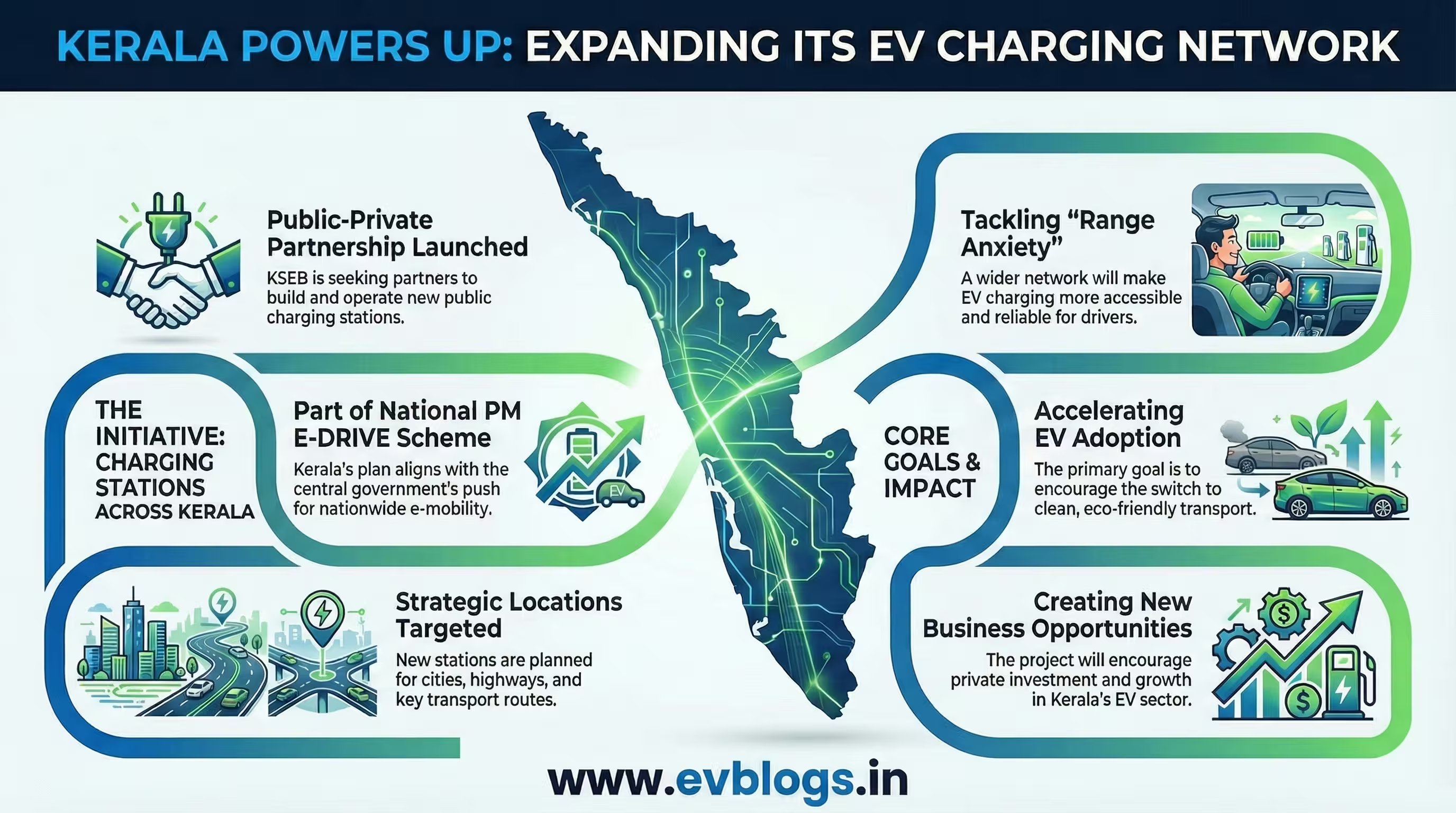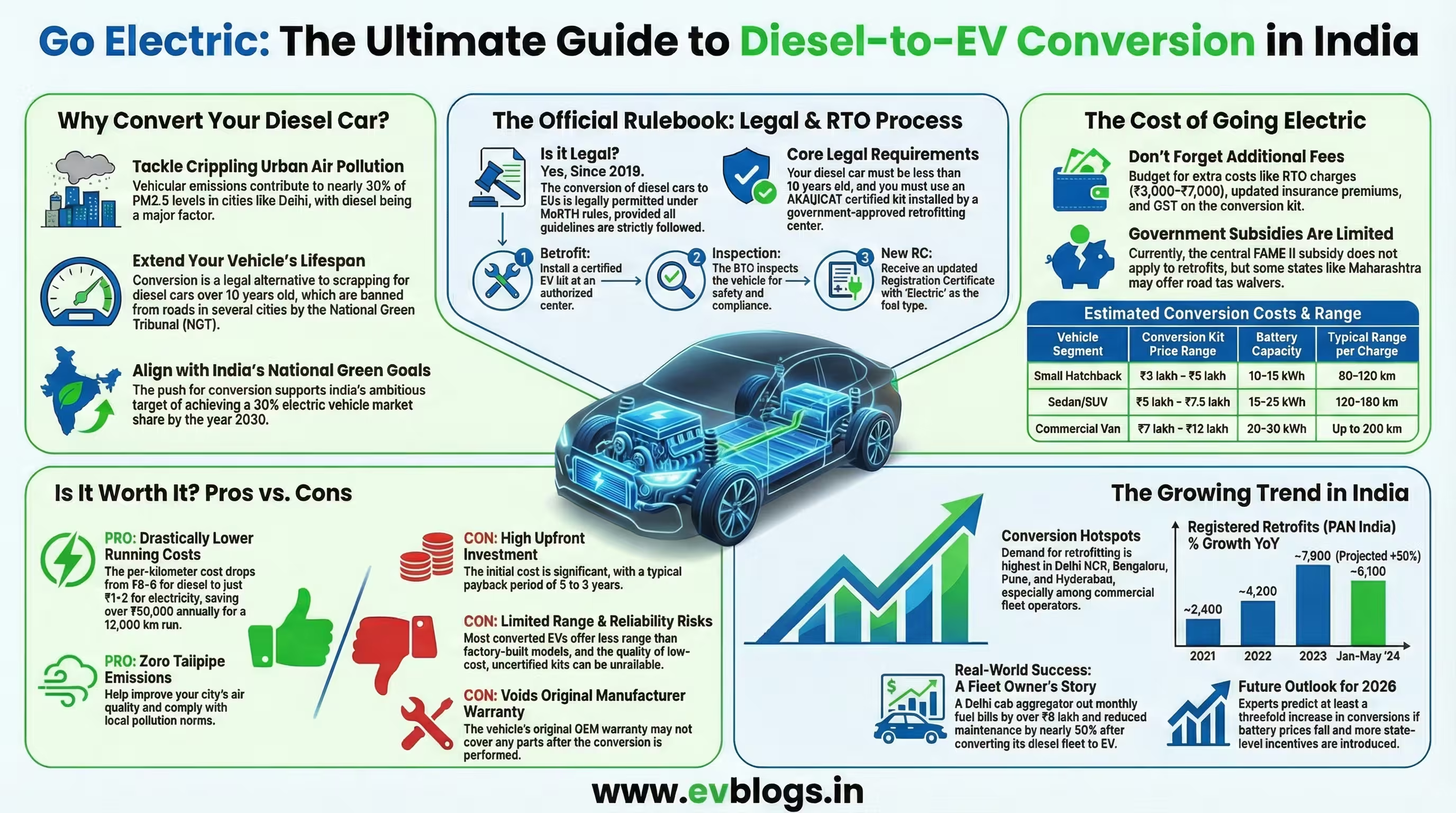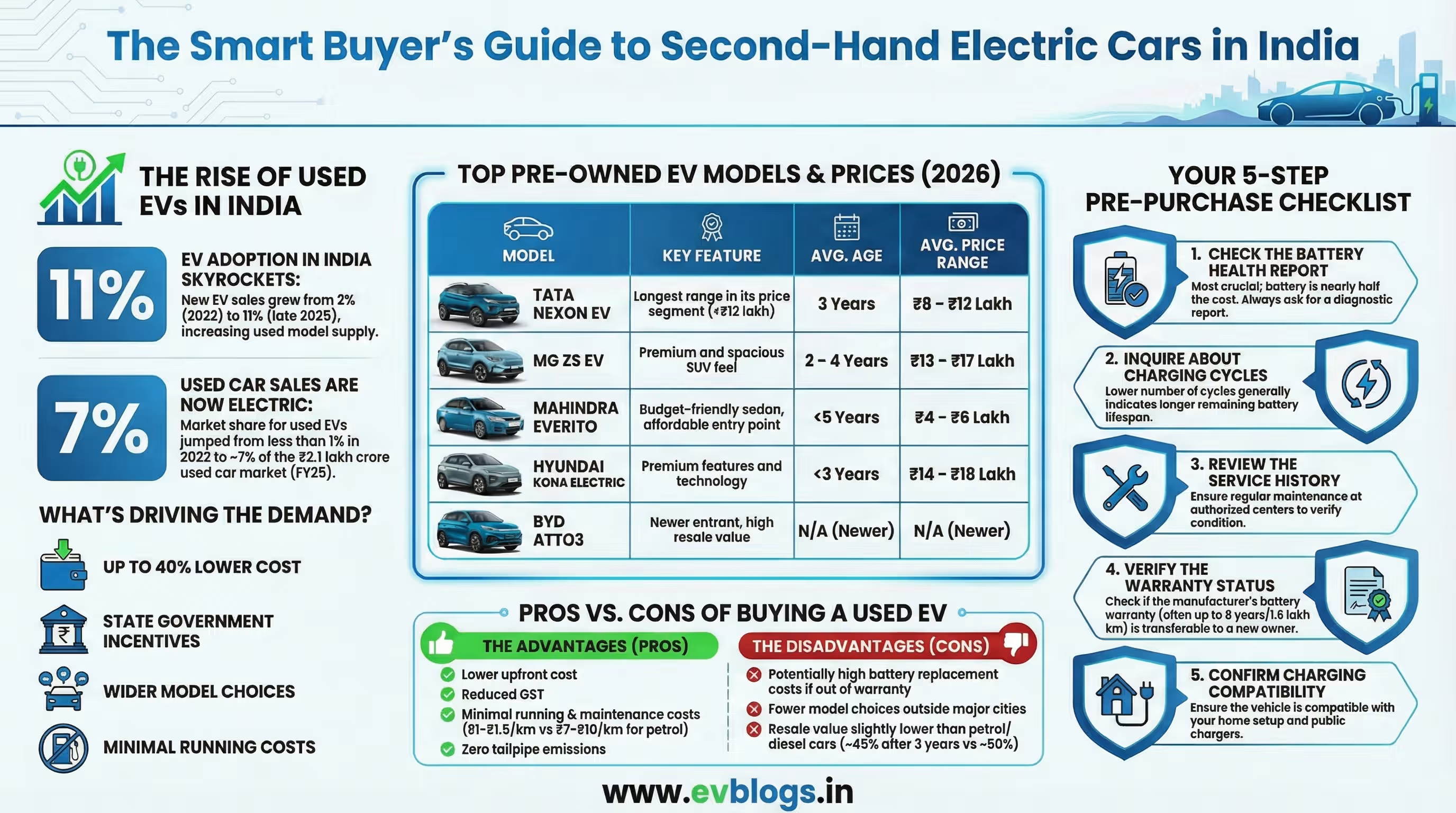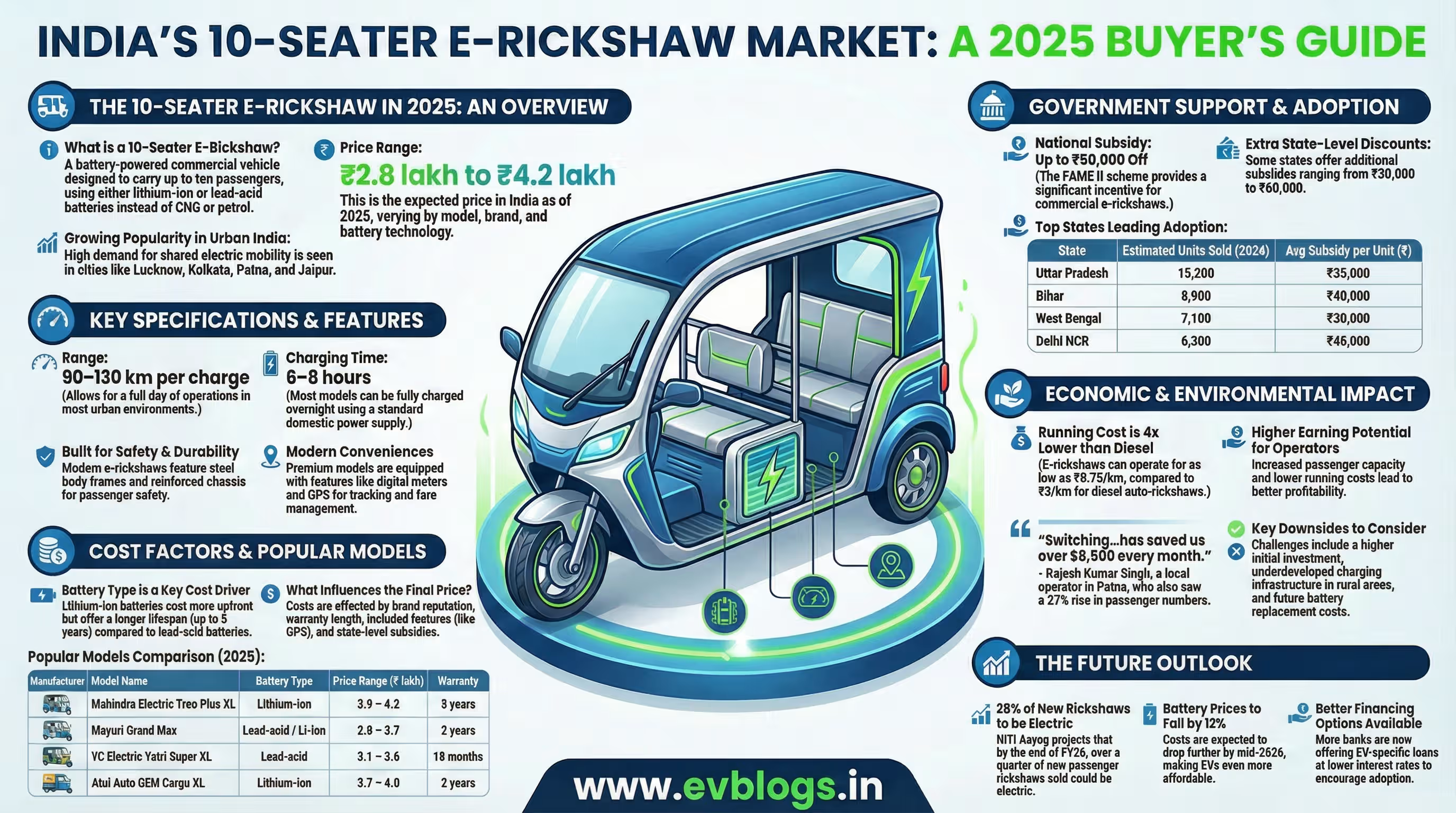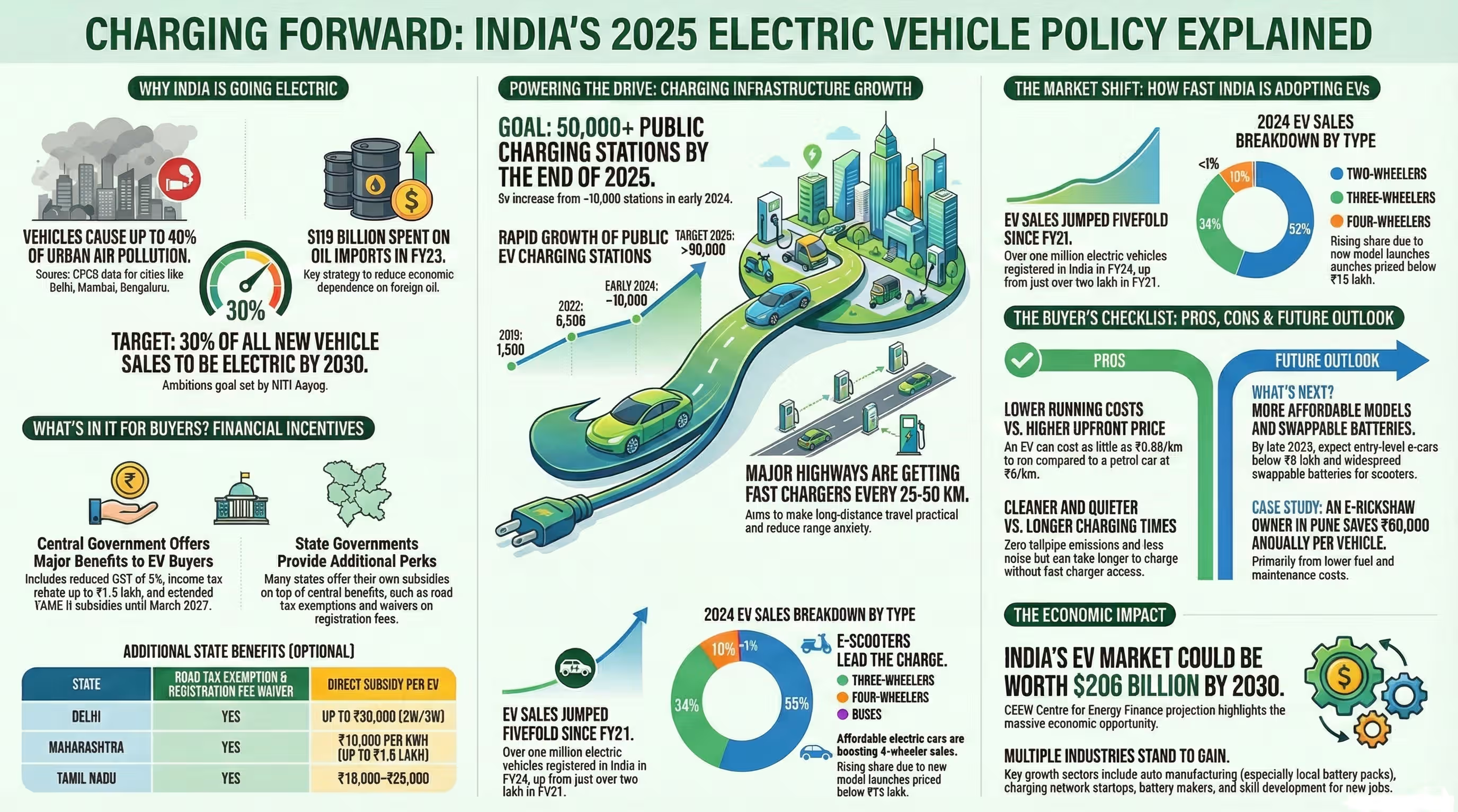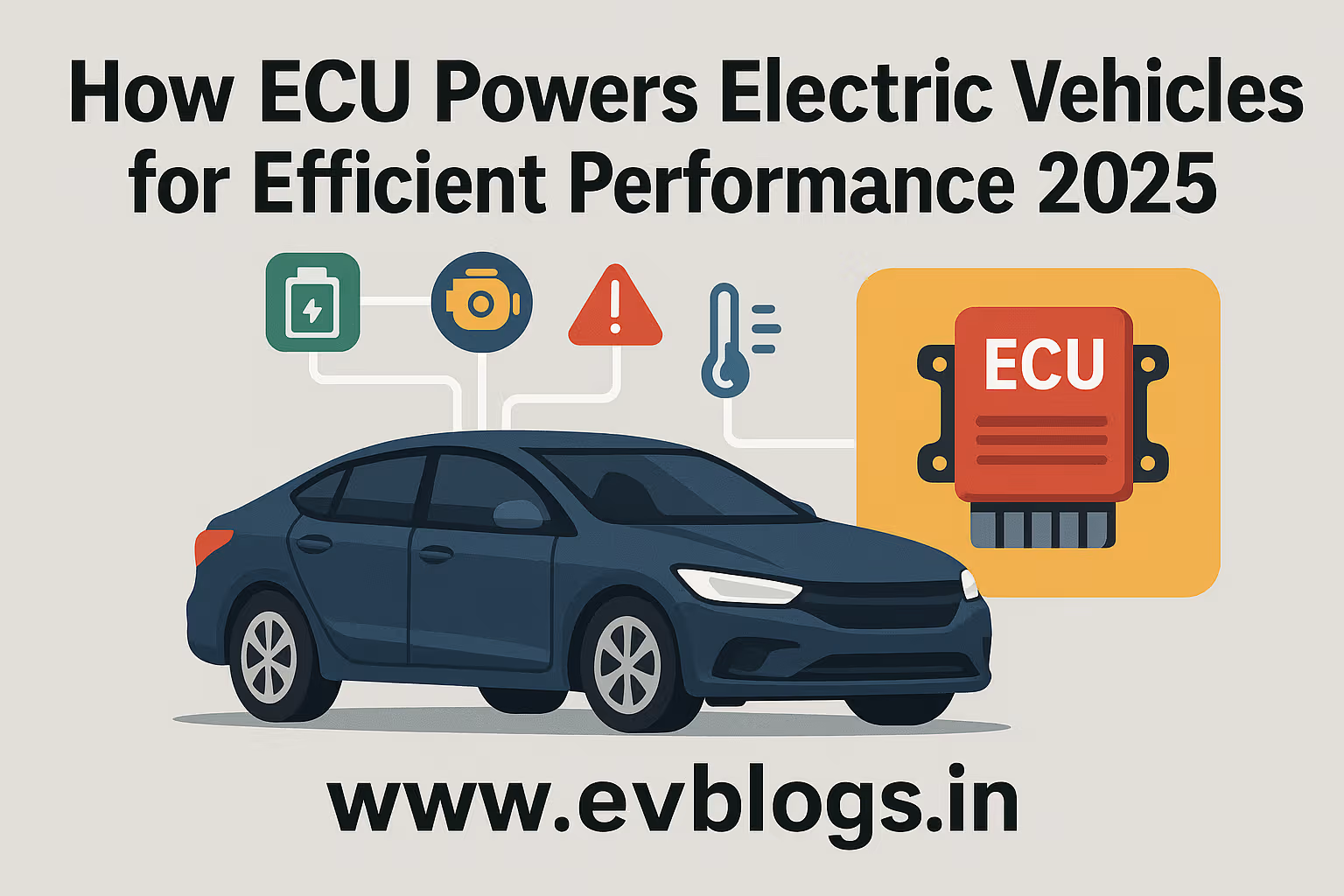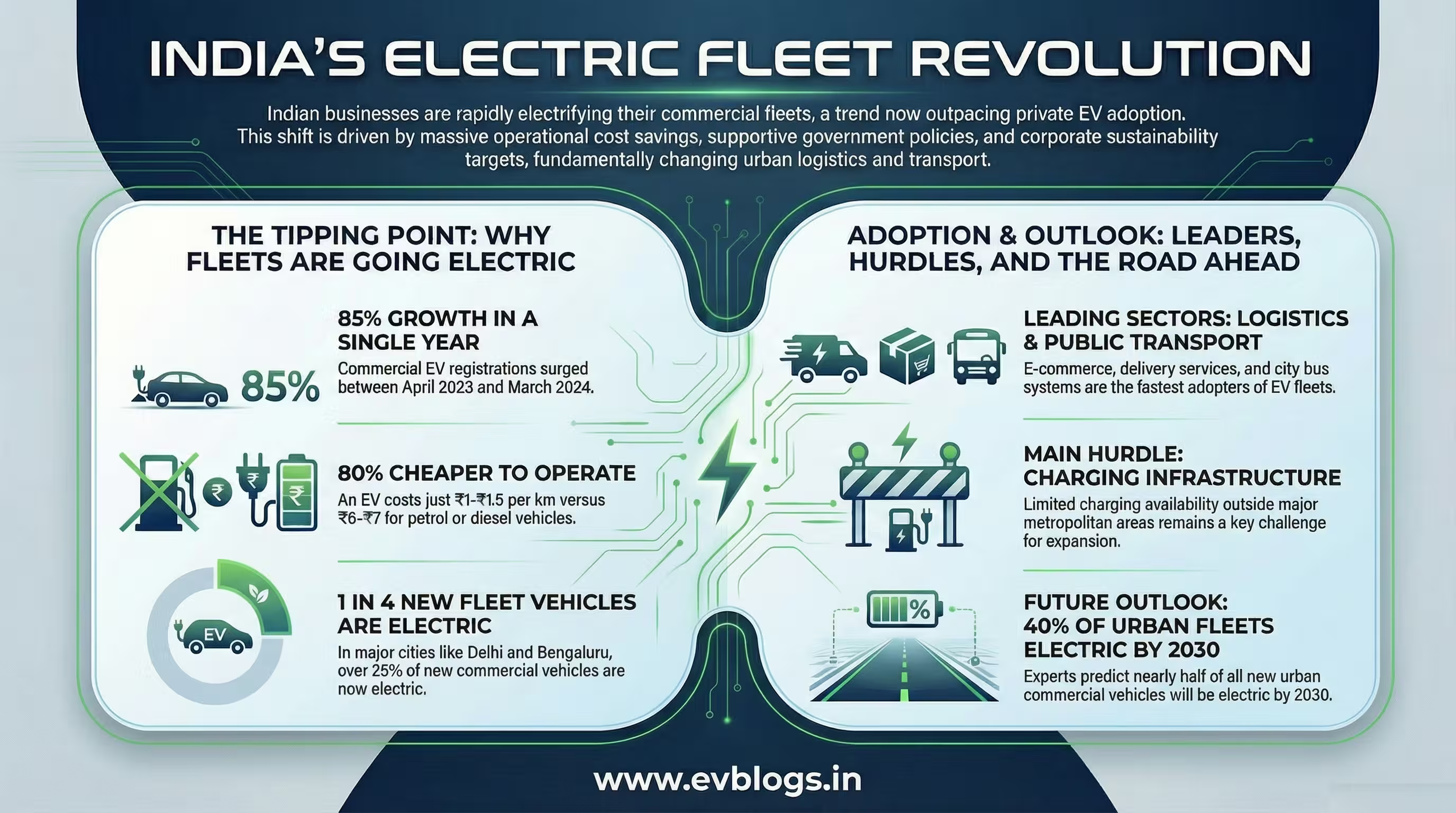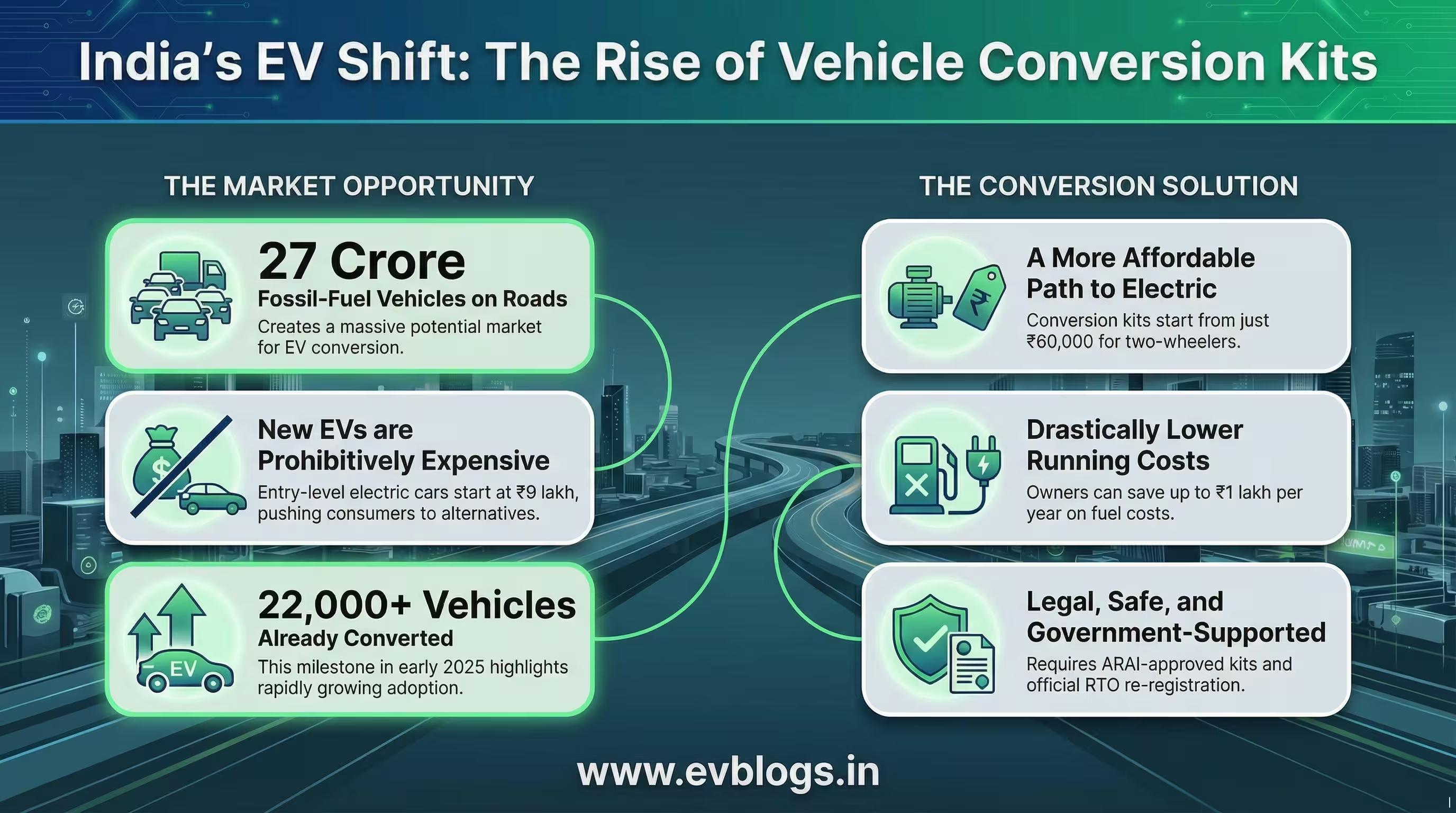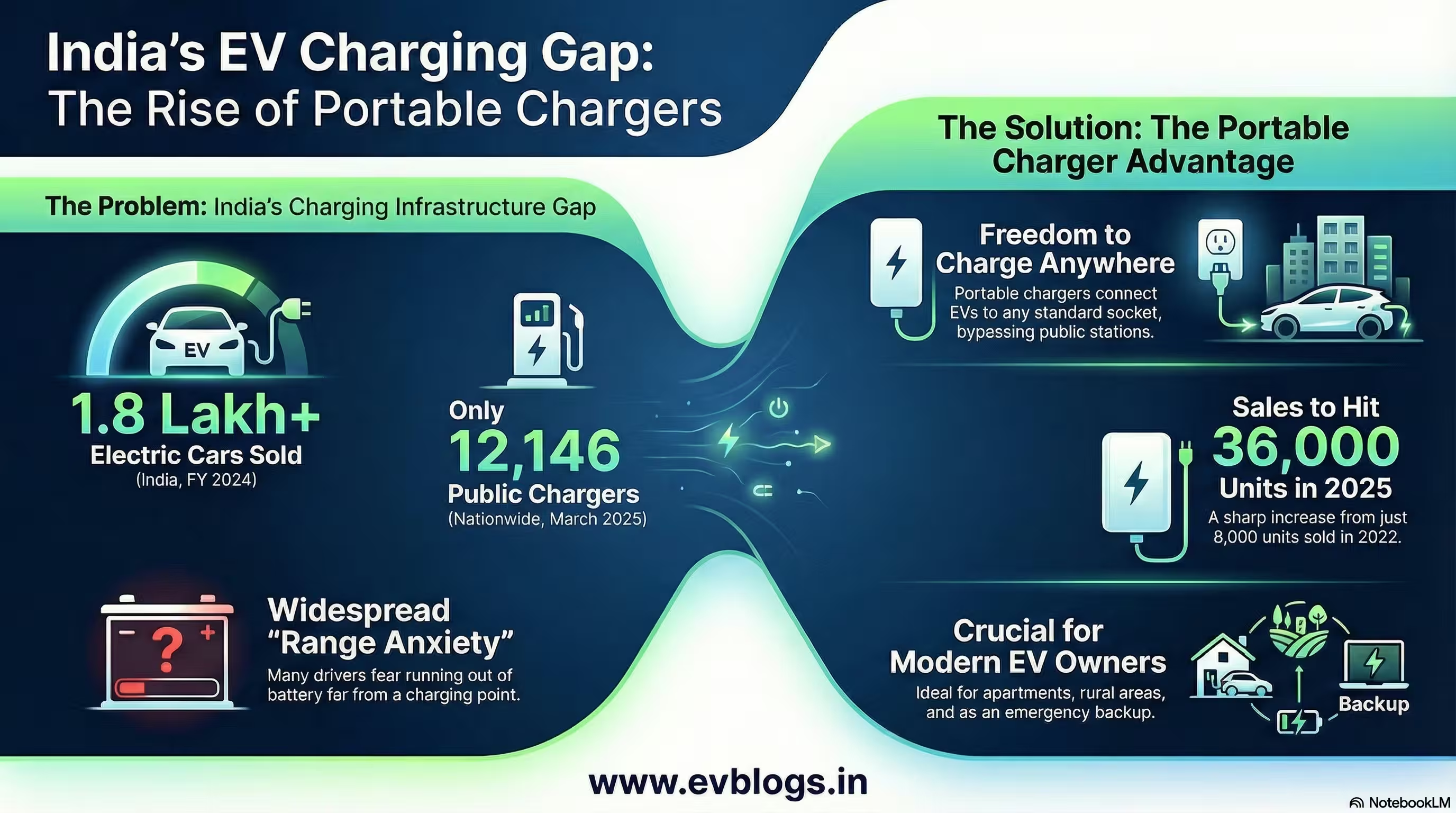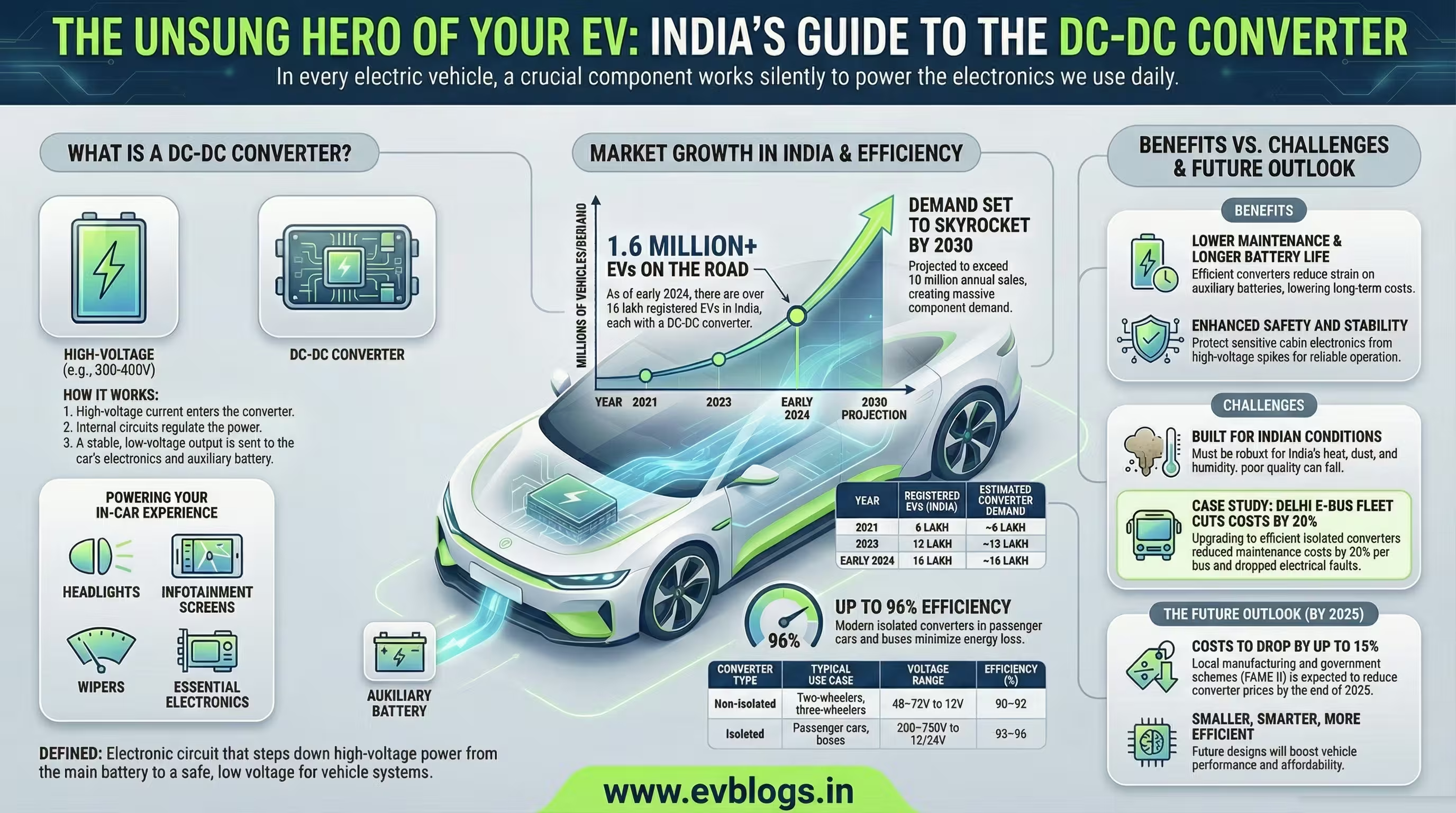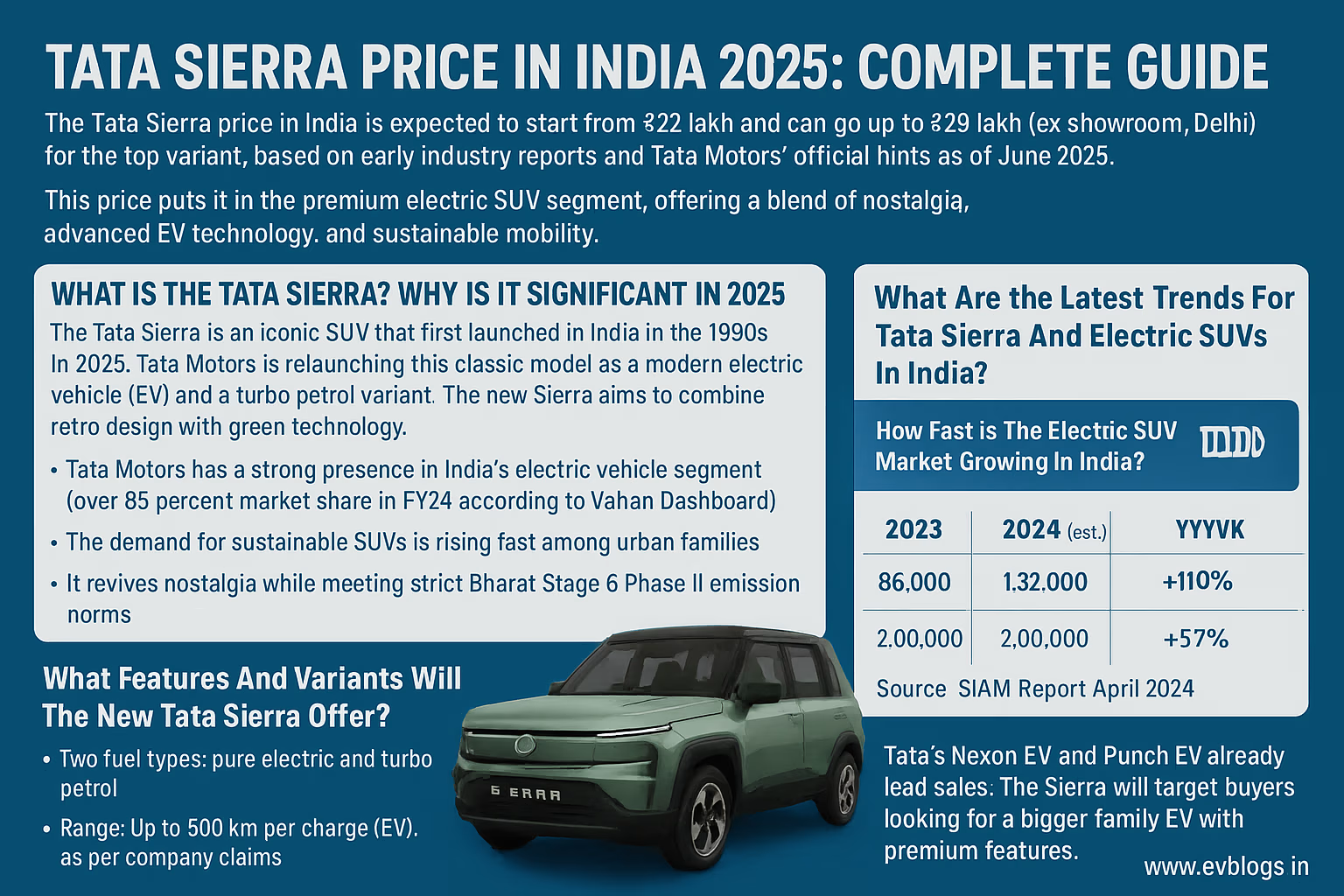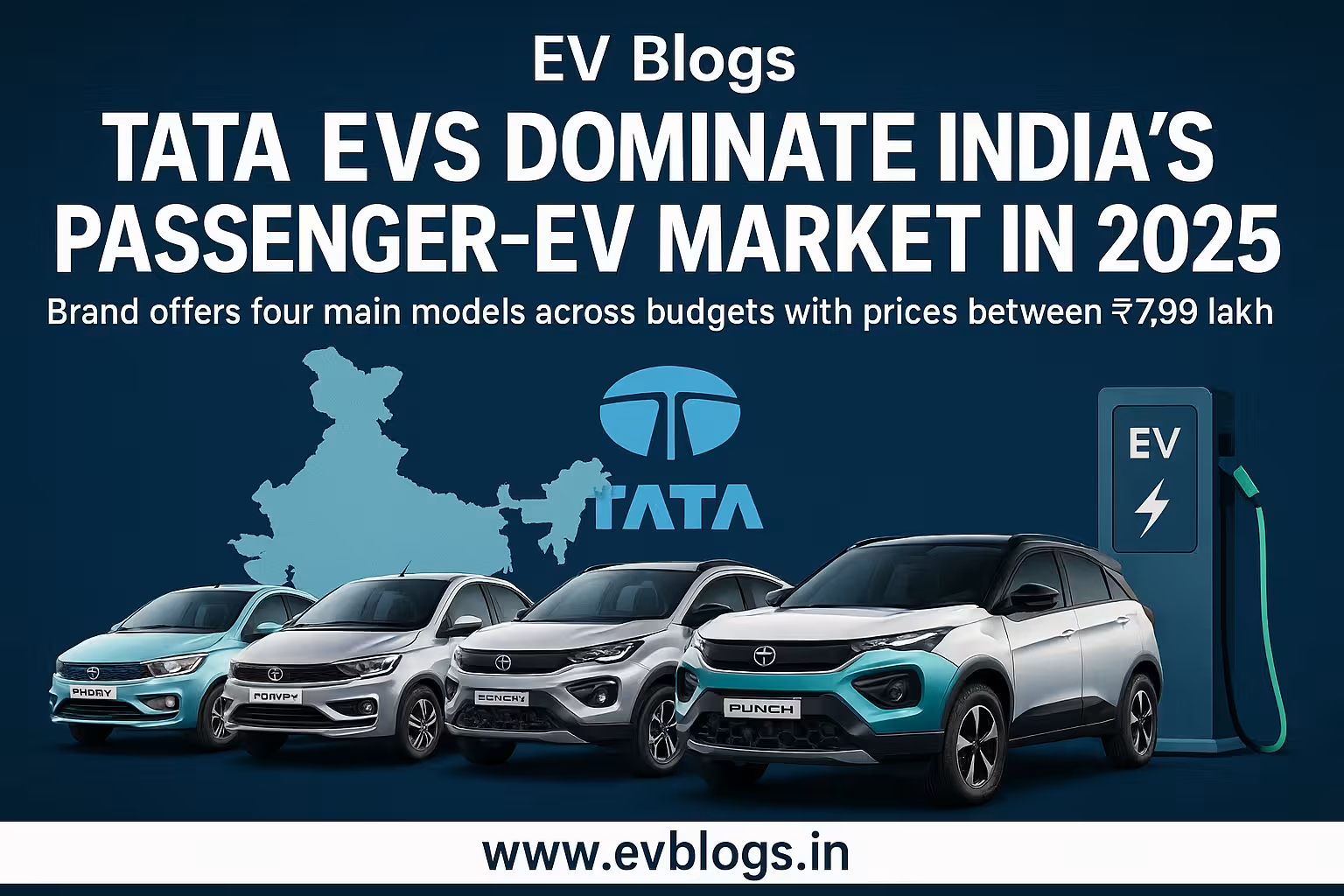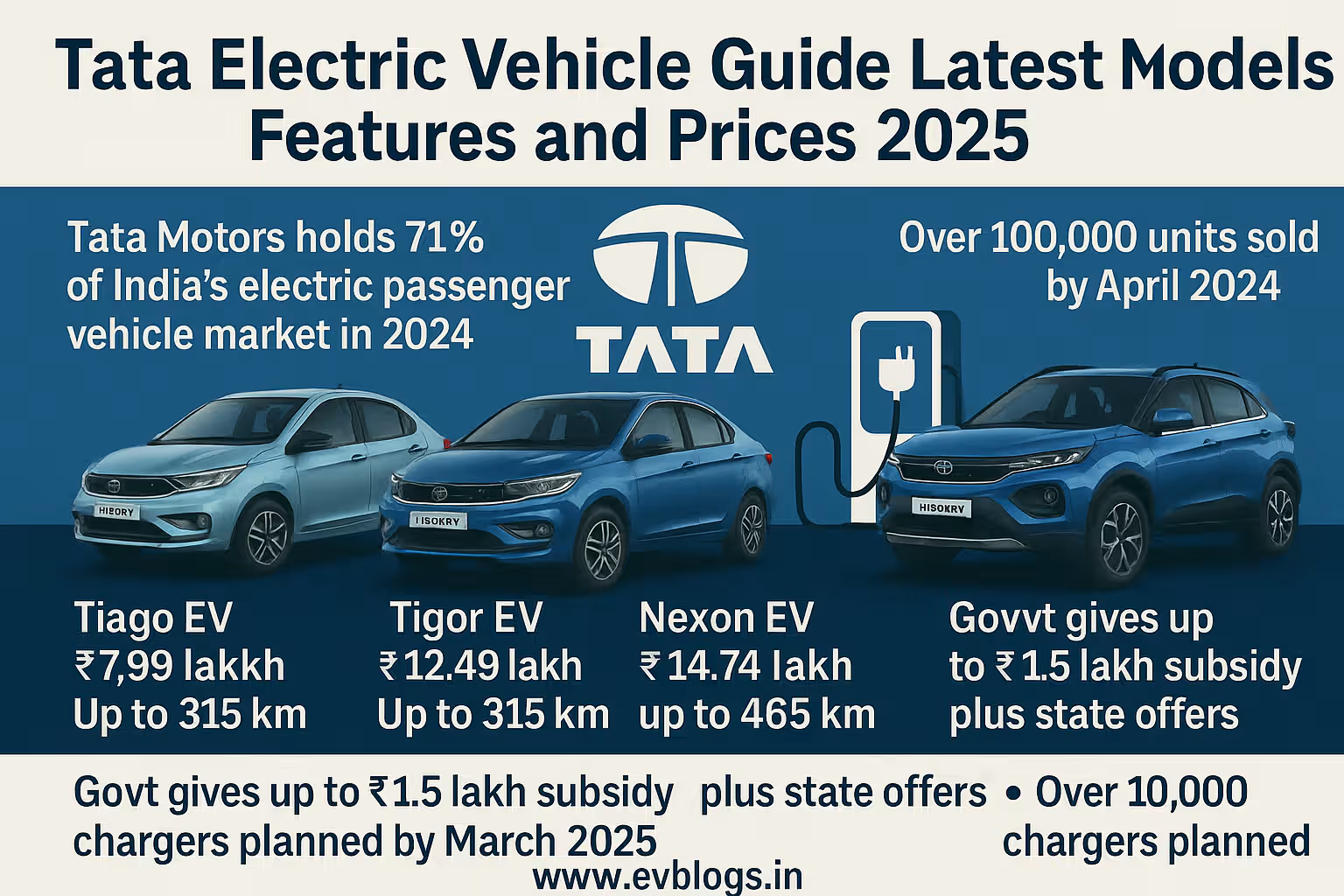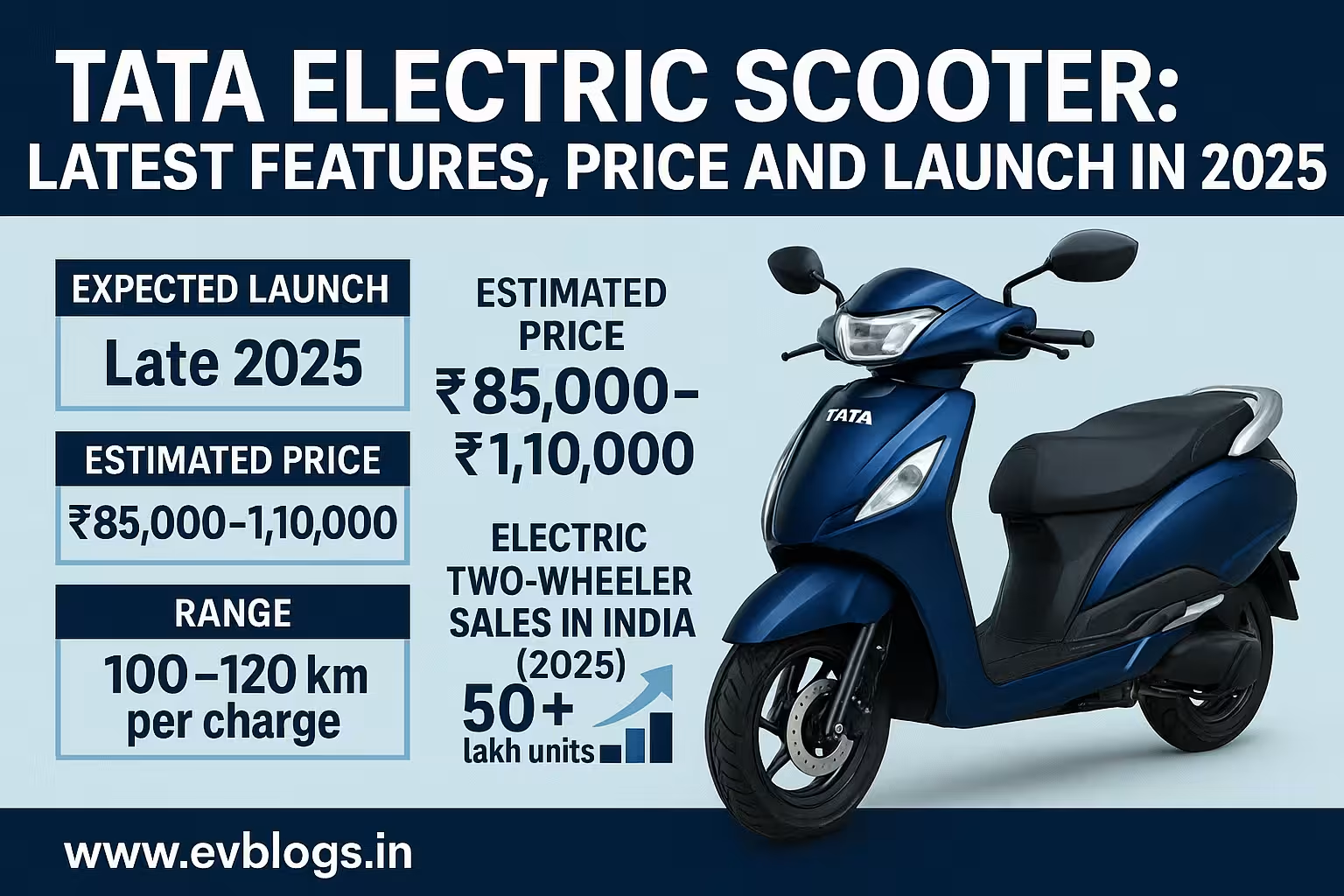Hedhvick Hirav
Hedhvick Hirav is a dedicated EV researcher and editor with over 4 years of experience in India’s growing electric vehicle ecosystem. Their contributions have been recognized in leading sustainability publications and automotive journals.
Summarize & analyze this article with
Choose an AI assistant and open this article directly:
Tip: if the AI doesn’t fetch the page automatically, paste the article URL manually.
Electric Vehicle Subsidy in Karnataka: Your Complete 2025 Guide
Introduction: Karnataka’s Drive Towards a Greener Future
Karnataka, home to India’s Silicon Valley and a leader in technological advancement, is also at the forefront of the country’s electric mobility revolution. As urban air pollution and climate concerns mount, state-level support for electric vehicles (EVs) has become not just timely, but vital. The Government of Karnataka has rolled out progressive policies—most notably the Electric Vehicle & Energy Storage Policy 2017 and its subsequent updates—to make EV adoption easier and more affordable for residents.
For anyone considering an EV in Bengaluru, Mysuru, Hubballi-Dharwad or elsewhere in Karnataka, understanding the current subsidy structure is crucial. This comprehensive guide demystifies the latest incentives, eligibility criteria, application process, expert insights, comparisons with other states, and practical tips to help you make informed decisions about going electric.
Understanding Electric Vehicle Subsidies in Karnataka
What are Electric Vehicle Subsidies?
Electric vehicle subsidies are financial incentives provided by governments to lower the upfront cost of purchasing an EV. These can be direct cash benefits, exemptions on taxes and registration fees, or infrastructure support like free charging. The goal is to bridge the price gap between traditional internal combustion engine (ICE) vehicles and EVs—making green mobility more accessible.
Why are They Important?
- Reduce Air Pollution: Transportation accounts for a significant share of urban air pollution.
- Lower Carbon Footprint: EVs emit significantly less greenhouse gases.
- Energy Independence: Reducing reliance on imported fossil fuels.
- Economic Development: Spur new industries around batteries, charging infrastructure, and R&D.
Key Facts: Karnataka’s EV Subsidy Landscape (2025 Update)
| Feature | Details (As of 2025) |
|---|---|
| State Policy | Karnataka Electric Vehicle & Energy Storage Policy |
| Target Beneficiaries | Individuals, businesses, fleet operators |
| Types of Vehicles | Electric two-wheelers, three-wheelers, cars/taxis/LCVs |
| Direct Purchase Subsidy | No direct cash subsidy; focus on tax/fee exemptions |
| Road Tax Exemption | 100% exemption for all EVs |
| Registration Fee Waiver | 100% exemption for all EVs |
| FAME II National Subsidy | Applicable alongside state waivers |
| Charging Infrastructure Support | Capital subsidy for public charging stations |
| Scrappage Incentives | Additional benefits for scrapping old ICE vehicles |
Note: Always check with your local RTO or official government notifications for updates.
Eligibility Criteria: Who Can Avail the Benefits?
Karnataka’s approach is broad-based to maximize adoption. Here’s what you need to know:
Eligible Applicants
- Individuals: Residents of Karnataka purchasing an EV for personal use.
- Businesses/Fleets: Companies registered in Karnataka buying EVs for commercial use (taxis, logistics etc.).
- Startups & MSMEs: Involved in manufacturing or deploying EV tech/infrastructure.
- Public Transport Operators: BMTC and other state-run transit agencies.
Eligible Vehicles
- Battery-operated two-wheelers
- E-autos (three-wheelers)
- E-cars (hatchbacks/sedans/SUVs)
- Light Commercial Vehicles (e-vans)
- Buses (for public/private fleets)
Other Requirements
- Vehicle must be registered in Karnataka.
- Must meet standards specified by government (e.g., ARAI/BIS certification).
- For FAME II subsidy: Only models listed on the Department of Heavy Industry portal are eligible.
Benefits Breakdown: What Do You Actually Get?
While some states offer direct cash subsidies per vehicle unit, Karnataka’s model relies on waiving state-imposed charges—making electric vehicles significantly cheaper over their lifetime.
1. Complete Exemption from Road Tax & Registration Fees
This is one of the most substantial state-level incentives:
Example Calculation
If you buy an electric car priced at ₹12 lakh:
- Typical road tax @ 13% = ₹1.56 lakh
- Registration fee ~ ₹6,000 Total Saved: Over ₹1.6 lakh upfront
For popular e-scooters costing around ₹1 lakh:
- Road tax @ 10% = ₹10,000 Total Saved: ₹10–12k per scooter
2. Central Government FAME II Subsidy (Stackable)
Karnataka residents can also claim the national FAME II incentive:
| Category | Incentive Amount (FAME II) |
|---|---|
| Two-wheelers | Up to ₹15,000 per kWh* |
| Three-wheelers | Up to ₹30,000–₹50,000 |
| Four-wheelers/LCVs | Up to ₹1.5 lakh |
*Varies by model and battery capacity.
3. Capital Subsidy for Charging Infrastructure
Entities setting up public charging stations may receive capital subsidies covering up to 25% of equipment costs (with maximum cap as per policy). This aims to rapidly expand reliable charging access statewide.
4. Scrappage Incentives
Additional rebates or discounts are available if you scrap your old petrol/diesel vehicle while buying a new EV—though these vary by location and period.
How To Avail: Step-by-Step Process For Buyers
The process is user-friendly and mostly automatic:
For Individual Buyers
- Choose Your Eligible Vehicle
- Ensure it’s listed under FAME II-approved models if you want central subsidies.
- Purchase From Registered Dealer
- The dealer will apply upfront FAME II discount; state waivers are processed during registration.
- RTO Registration
- Submit standard documents; road tax and registration fees are auto-waived if registering as an EV.
- Receive Final Invoice
- Pay only ex-showroom price minus applicable central subsidy; state fees will show as ‘Nil’ on invoice.
- (Optional) Apply For Scrappage Incentive
- If scrapping old ICE vehicle; check with dealer/RTO for current scheme details.
For Fleet Operators/Businesses
- Obtain GST registration & business proof.
- Choose eligible vehicles in bulk.
- Approach authorized dealer; request proforma invoice with all applicable waivers/subsidies shown.
- Register each vehicle at RTO as commercial vehicle—state incentives auto-applied at this stage.
Expert Insights: What Industry Leaders Say
We spoke with mobility analysts and local dealership heads about how Karnataka’s policy compares nationwide:
Dr. Shweta Rao, Urban Mobility Researcher:
“While some states like Delhi offer hefty cash subsidies per unit beyond central grants, Karnataka has taken a streamlined approach—removing all local taxes so buyers get a clear-cut saving without tedious paperwork.”
Manoj Bhatia, Bengaluru Auto Dealer:
“Buyers usually see the price drop reflected immediately when they go to register their vehicle at the RTO—it makes the process transparent and hassle-free.”
Industry Trends Noted:
- Demand spikes near every budget announcement or when central schemes update their lists.
- Corporate fleets in Bengaluru have accelerated electrification due to these cost savings.
Practical Advice & Tips For Prospective EV Buyers In Karnataka
- Compare Total Cost of Ownership
- Factor fuel savings (~₹1/km vs ~₹4/km), lower maintenance costs alongside upfront savings from tax waivers.
- Check FAME II Model List
- Only certain models qualify for central subsidy; check regularly as list updates often.
- Plan Charging Solutions Early
- Home charging is sufficient for most users in cities; apartments may need society approval.
- Time Your Purchase
- Watch out for new policy updates or limited-period scrappage bonuses often announced during festivals or budget sessions.
- Look For Dealer Promotions
- Many dealers add extra offers such as extended warranties or accessories during festive seasons.
Comparing With Other States: How Does Karnataka Fare?
Here’s how Karnataka stacks up against other leading states in promoting electric vehicles:
| State | Direct Cash Subsidy? | Road Tax Exemption | Registration Fee Waiver | Additional Perks |
|---|---|---|---|---|
| Delhi | Yes | Yes | Yes | Free parking |
| Maharashtra | Yes | Partial | Yes | Early bird incentives |
| Tamil Nadu | No | Yes | Yes | Battery manufacturing |
| Gujarat | Yes | Yes | Yes | High e-bus focus |
| Karnataka | No | Yes | Yes | Infra/fleet focus |
Conclusion: While not offering direct per-unit cash handouts like some states do currently (2025), Karnataka offsets this by completely waiving recurring state taxes/fees—and focusing on making public charging widespread.
Use-Cases: Who Benefits Most From These Policies?
- Urban Commuters: Daily riders save most through lower running costs plus zero road tax/registration fees.
- Fleet Owners/Operators: Taxi/logistics companies see dramatic TCO reductions across large vehicle numbers.
- Startups/MSMEs: Lower entry barriers thanks to affordable commercial registrations plus infrastructure aid.
- Apartment Dwellers: Increasing number of societies now allow home charger installations owing to policy push.
Frequently Asked Questions (FAQ)
Q1: Do I get any direct cash subsidy from the state when buying an electric car/two-wheeler?
No direct cash transfer is offered by the Karnataka government as of 2025; however, full road tax and registration fee waivers provide substantial savings upfront.
Q2: Can I combine central FAME II subsidy with Karnataka state benefits?
Yes—dealerships apply FAME II discounts at purchase while local RTO provides state fee waivers automatically during registration.
Q3: Are used/pre-owned electric vehicles eligible for these exemptions?
No—tax/fee waivers apply only to first-time registration of new electric vehicles within the state.
Q4: Is there any benefit if I scrap my old petrol/diesel car while buying an EV?
Yes—periodic scrappage incentives may be offered via dealers/RTOs depending on ongoing schemes; always confirm latest details before purchase.
Q5: How do I know if my chosen model qualifies for FAME II subsidy?
Refer to the official list maintained by India’s Department of Heavy Industry or consult your dealer before booking/purchasing your vehicle.
Q6: Does this apply across all cities/towns/villages in Karnataka?
Yes—the policy covers all districts and applies uniformly across rural and urban areas as long as you register your EV within Karnataka.
Conclusion & Key Takeaways
Karnataka remains one of India’s leading states enabling affordable transition to electric mobility through clear-cut tax exemptions rather than bureaucratic cash payouts—a strategy that ensures both transparency and ease-of-access regardless of buyer type or location within the state.
If you’re planning an EV purchase in 2025:
- Expect significant reduction in total cost thanks to full waiver on road tax/registration fees plus any central government subsidies applicable;
- Make sure your chosen model qualifies under national schemes;
- Leverage additional perks like scrappage benefits where available;
- Start early conversations around home/workplace charging setups;
By aligning supportive policy with consumer convenience—and nurturing robust charging infrastructure—Karnataka continues its drive towards cleaner air and sustainable urban living.


